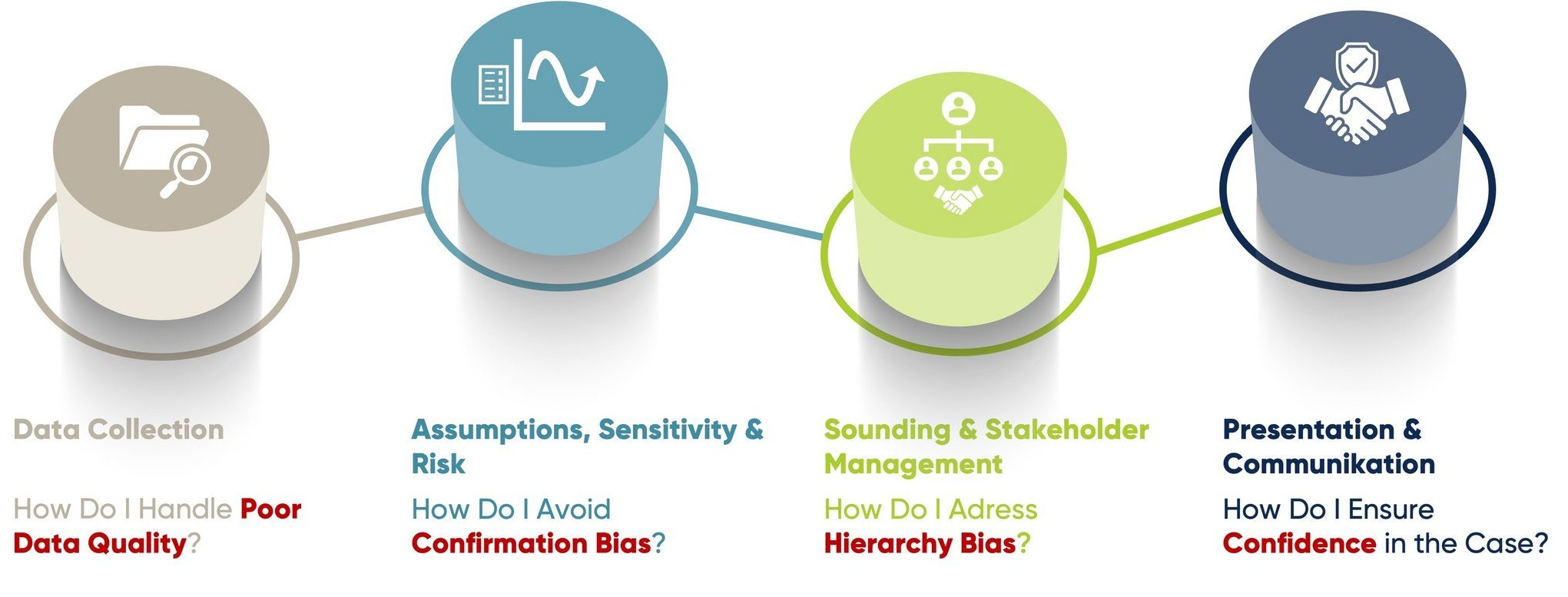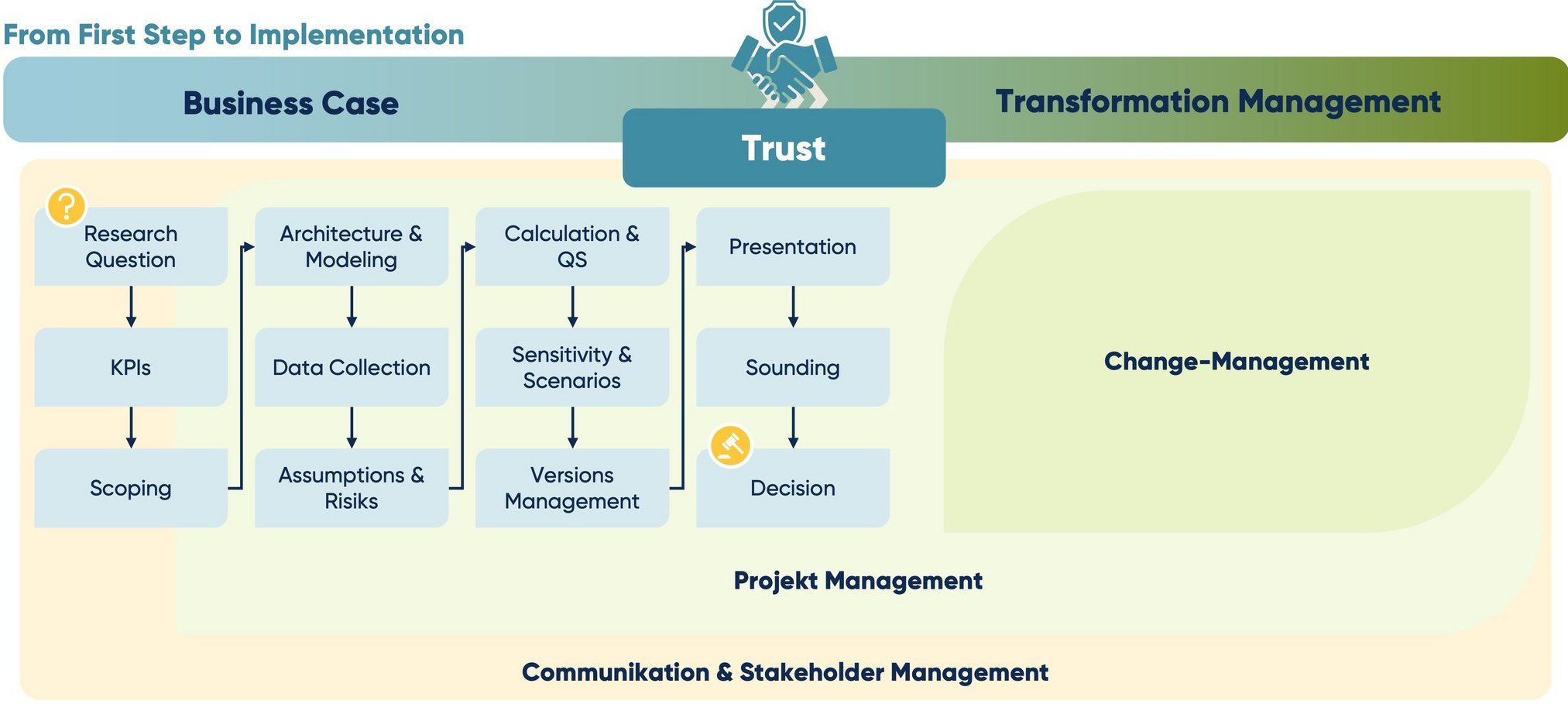Transformation projects have become inevitable in today's business world. Nevertheless, an alarming seven out of ten transformation initiatives fail in their initial phases. The primary reason lies not in lack of vision or insufficient resources, but in inadequate strategic preparation.
A professionally crafted business case functions as a strategic navigation system for complex transformation endeavours. It not only creates the analytical foundation for data-driven decision-making but also establishes the necessary confidence amongst all stakeholders. Decision-makers and project managers who master this strategic discipline transform uncertain investments into calculable business opportunities.





![[Translate to English:]](/fileadmin/_processed_/9/0/csm_2024-11-13-PORTRAIT-Mailaender-Benedigt_c51c2c2a80.jpg)
















